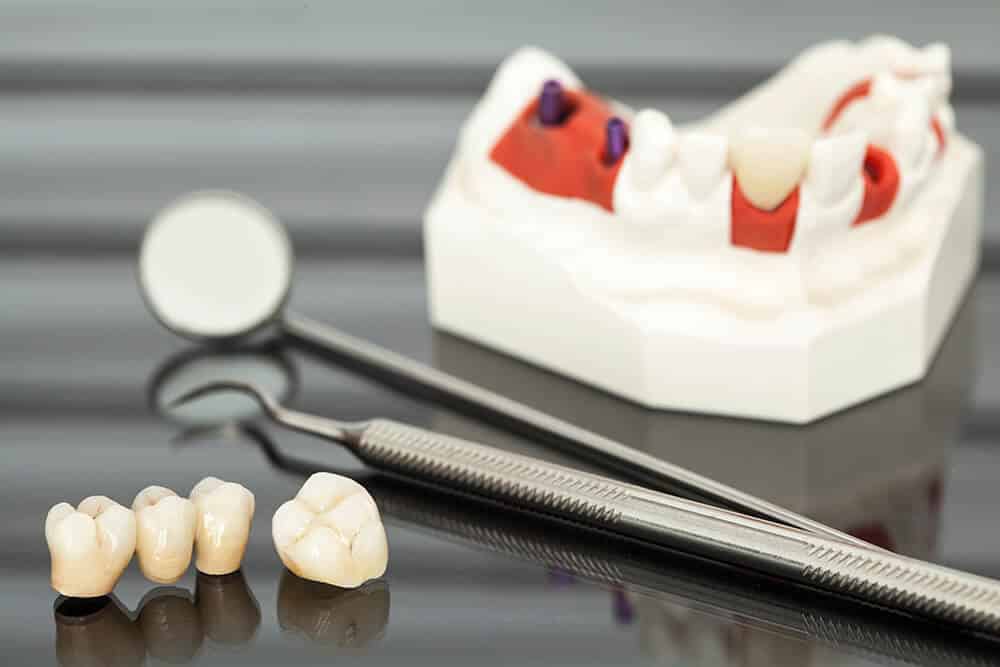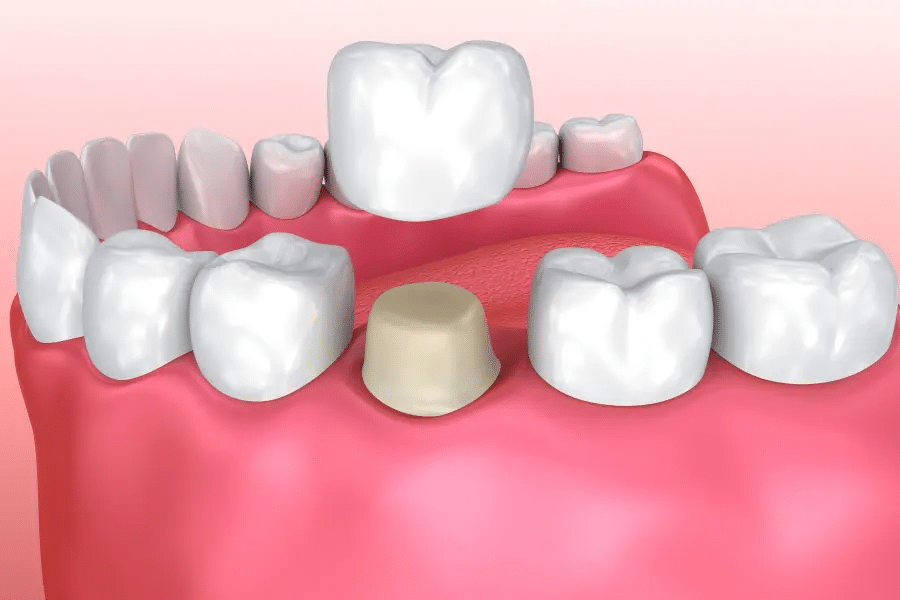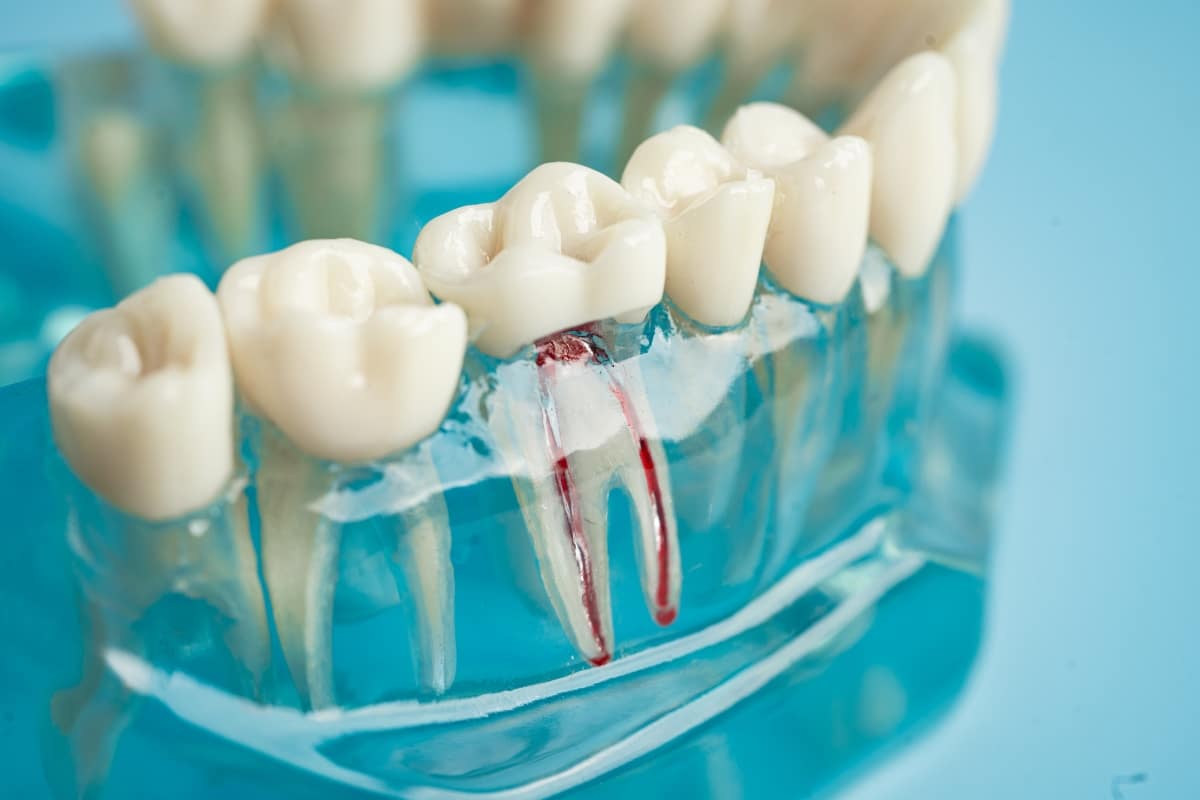Same-day treatments are available.
How Long Do Dental Crowns Last? Maintaining Your Dental Restoration

Dental crowns are a common and effective solution for restoring damaged or weakened teeth. They provide strength, functionality, and aesthetic appeal, ensuring your smile remains healthy and beautiful. However, understanding the longevity of dental crowns and how to maintain them is crucial for maximizing their benefits. In this comprehensive guide, we will explore the lifespan of dental crowns, factors influencing their durability, and tips for proper maintenance to ensure your dental restoration lasts as long as possible.
Understanding Dental Crowns
A dental crown is a cap placed over a tooth to restore its shape, size, and function. Crowns are used to:
- Protect a weak tooth from breaking or further damage.
- Support a tooth with a large filling when there isn’t enough natural tooth structure remaining.
- Cover a misshaped or discolored tooth, improving its appearance.
- Anchor a dental bridge in place.
- Cover a dental implant.
Crowns come in various materials, including porcelain, ceramic, metal, and resin. The choice of material can affect the crown’s durability, appearance, and cost.

Lifespan of Dental Crowns
The lifespan of a dental crown can vary based on several factors, including the material used, the location of the crown, and the individual’s oral hygiene practices. On average, dental crowns can last between 5 and 15 years. Here’s a breakdown of factors influencing the longevity of dental crowns:
1. Material of the Crown
- Porcelain Crowns: Known for their natural appearance and suitability for front teeth, porcelain crowns typically last 5 to 15 years. They are less durable under heavy biting forces compared to metal crowns.
- Ceramic Crowns: Similar to porcelain crowns, ceramic crowns offer a natural look and are suitable for front teeth. They generally last around 5 to 15 years.
- Metal Crowns: Made from alloys such as gold or platinum, metal crowns are highly durable and can last 10 to 15 years or more. They are often used for back teeth where biting forces are greater.
- Resin Crowns: Less commonly used due to their lower durability, resin crowns usually last about 5 to 7 years. They are often used as a temporary solution before a more permanent crown is placed.
2. Location of the Crown
The placement of the crown can impact its lifespan. Crowns on back teeth (molars) experience more wear and tear due to chewing and grinding, so they may have a shorter lifespan compared to those on front teeth.
3. Oral Hygiene Practices
Good oral hygiene is essential for extending the life of dental crowns. Brushing and flossing regularly, along with routine dental check-ups, help prevent issues that could compromise the crown’s integrity.
4. Biting Forces and Habits
Excessive biting forces or habits such as grinding or clenching teeth can put extra stress on crowns and lead to premature wear or damage. Managing these habits with appropriate dental solutions can help prolong the life of your crowns.
Factors Affecting the Durability of Dental Crowns
Several factors can influence how long your dental crown will last. Understanding these factors can help you take steps to maximize the longevity of your dental restoration.
1. Quality of the Crown
The quality of the materials used and the craftsmanship of the crown play a significant role in its durability. Crowns made from high-quality materials and created by skilled dental professionals generally last longer.
2. Fit and Placement
A well-fitted and properly placed crown will last longer than one that is poorly fitted. An ill-fitting crown can lead to complications such as decay or gum disease, which can compromise the crown’s longevity.
3. Oral Hygiene
Maintaining excellent oral hygiene is crucial for the health of your dental crown. Plaque and bacteria buildup around the crown can lead to decay and gum problems, which can affect the crown’s lifespan.
4. Diet and Eating Habits
A diet high in sugary or acidic foods can contribute to crown damage and decay. Additionally, chewing on hard objects like ice or pen caps can put unnecessary stress on the crown.
5. Bruxism (Teeth Grinding)
People who grind or clench their teeth are at a higher risk of damaging their crowns. Bruxism can cause wear and tear on crowns, leading to cracks or fractures.
Tips for Maintaining Your Dental Crown
Proper care and maintenance of your dental crown are essential for ensuring its longevity. Follow these tips to keep your crown in excellent condition:
1. Practice Good Oral Hygiene
- Brush Twice Daily: Use fluoride toothpaste to brush your teeth, including the area around the crown, at least twice a day.
- Floss Daily: Floss around the crown and between your teeth to remove plaque and food particles. Use dental floss or an interdental brush to clean areas that are hard to reach.
- Use Mouthwash: Rinse with an antibacterial mouthwash to help reduce plaque buildup and maintain gum health.
2. Avoid Hard or Sticky Foods
- Limit Hard Foods: Avoid chewing on hard foods like ice, nuts, or hard candies, which can damage your crown.
- Steer Clear of Sticky Foods: Sticky foods, such as caramel or chewing gum, can pull at the crown and potentially dislodge it.
3. Address Bruxism
- Consult Your Dentist: If you grind or clench your teeth, talk to your dentist about a custom mouthguard or other treatments to protect your crowns from excessive wear.
- Manage Stress: Stress management techniques may help reduce bruxism and prevent damage to your crowns.
4. Regular Dental Check-ups
- Schedule Routine Visits: Regular dental check-ups allow your dentist to monitor the condition of your crown and address any issues before they become serious.
- Professional Cleanings: Regular cleanings help remove plaque and tartar buildup, reducing the risk of complications around your crown.
5. Avoid Poor Habits
- Don’t Use Teeth as Tools: Avoid using your teeth to open packages or bite down on non-food items, as this can damage your crown.
- Be Cautious with Teeth Whitening Products: Some over-the-counter whitening products can affect the color of crowns. Consult your dentist before using any whitening products.
Signs That Your Crown May Need Attention
While dental crowns are durable, they may require attention if you notice any of the following signs:
- Discomfort or Sensitivity: If you experience pain or sensitivity around the crown, it could indicate an issue that needs to be addressed.
- Loosening or Movement: If the crown feels loose or shifts, contact your dentist to evaluate and address the problem.
- Visible Damage: Cracks, chips, or discoloration in the crown may indicate that it needs repair or replacement.
- Changes in Bite: If your bite feels uneven or the crown is interfering with your normal chewing function, consult your dentist.
Dental crowns are a valuable investment in your oral health, offering protection and restoration for damaged or weakened teeth. Understanding how long dental crowns last and taking steps to maintain them can help ensure that your restoration remains functional and aesthetically pleasing for years to come.
By following proper oral hygiene practices, avoiding habits that could damage your crown, and attending regular dental check-ups, you can maximize the lifespan of your dental crowns and enjoy a healthy, beautiful smile. If you have any concerns about your crowns or need more personalized advice, don’t hesitate to reach out to your dentist for guidance.

7 Foods and Drinks to Avoid After Professional Teeth Whitening in Cypress

What to Expect After a Root Canal Treatment in Cypress



